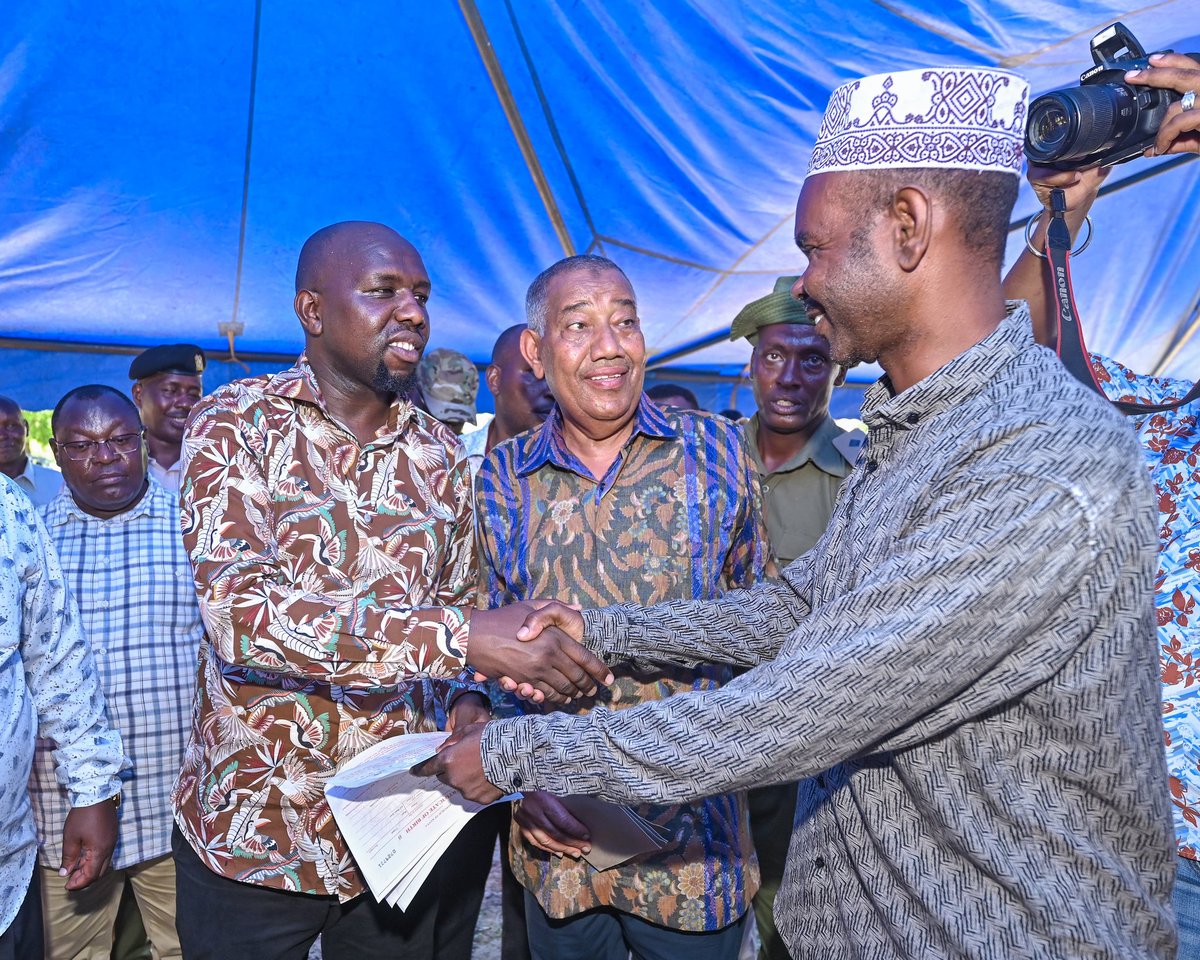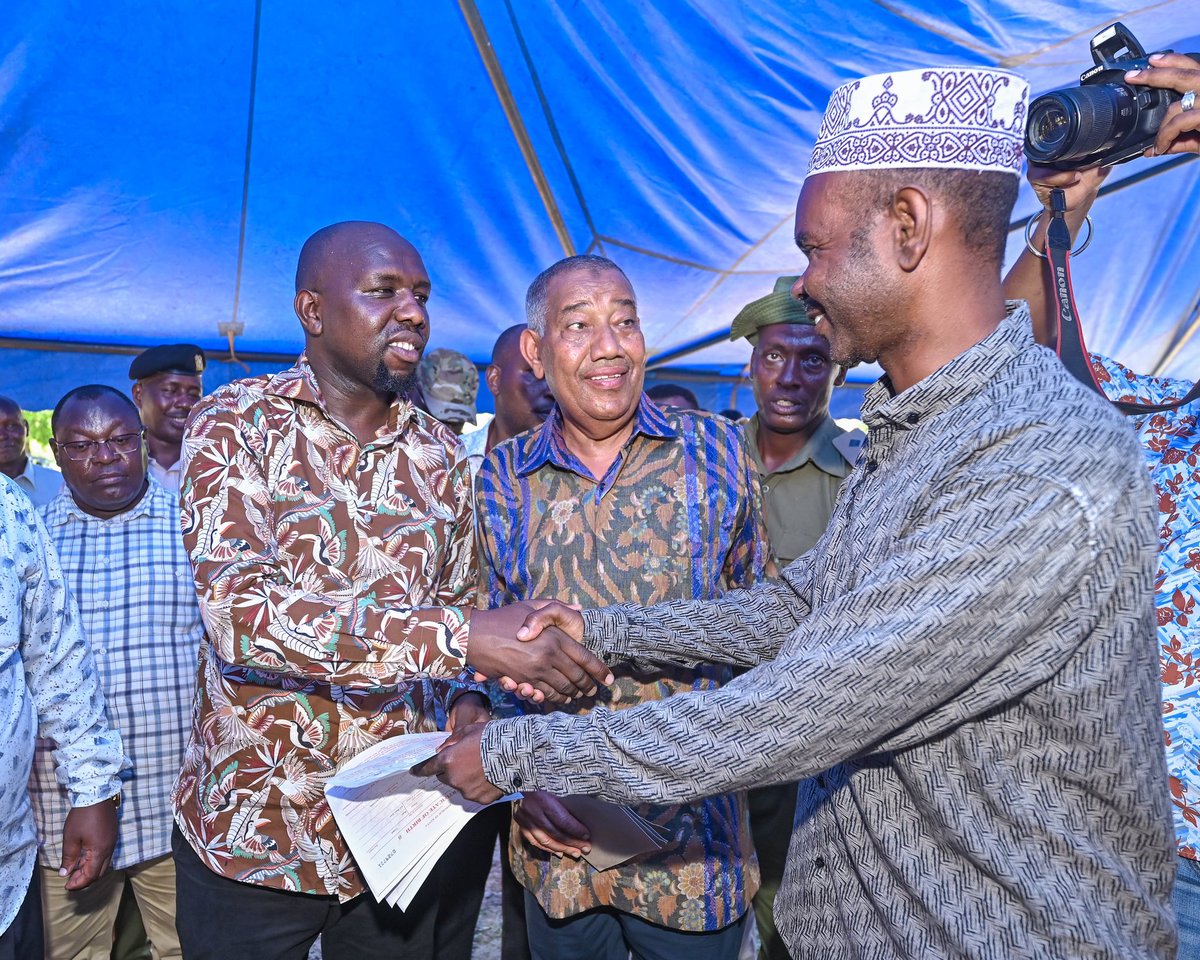CS Murkomen: Journalist Attacks “Unfortunate” Amid Free Speech Promises!
CS Murkomen’s Commitment to Freedom of Speech and Press in Kenya
In a recent statement, Kenya’s Cabinet Secretary for Transport, Infrastructure, Housing, Urban Development, and Public Works, Kipchumba Murkomen, addressed the pressing issue of freedom of speech and press in the country. His remarks came in the wake of unfortunate incidents involving attacks on journalists in Nakuru, which he described as both regrettable and unintentional. This summary delves into the key points of Murkomen’s assurances to Kenyans and the ongoing investigations into these attacks, highlighting the government’s stance on protecting journalistic freedoms.
The Importance of Freedom of Speech
Freedom of speech and press are fundamental pillars of democracy, enabling citizens to express their thoughts and opinions without fear of retribution. Murkomen emphasized that the government recognizes and upholds these rights as essential components of a vibrant democracy. He reassured Kenyans that the government is committed to fostering an environment where journalists can operate safely and without intimidation.
Recent Attacks on Journalists
The recent attacks on journalists in Nakuru have raised concerns regarding the safety of media personnel in Kenya. Murkomen described these incidents as unfortunate, underscoring that such acts are not representative of the government’s stance on media freedom. He acknowledged the critical role that journalists play in informing the public and holding authorities accountable.
Government’s Response
In light of the attacks, Murkomen assured the public that thorough investigations are underway to identify the perpetrators and bring them to justice. The government is taking these incidents seriously, and it is committed to ensuring that such acts do not recur. The Cabinet Secretary noted that protecting journalists is a shared responsibility among all stakeholders, including the government, civil society, and the media itself.
- YOU MAY ALSO LIKE TO WATCH THIS TRENDING STORY ON YOUTUBE. Waverly Hills Hospital's Horror Story: The Most Haunted Room 502
Jukwaa La Usalama Initiative
Murkomen’s statements were part of a broader initiative known as Jukwaa La Usalama, which translates to "Safety Forum." This initiative aims to engage various stakeholders in discussions about security, rights, and the role of the media in society. The Lamu county edition of this initiative is particularly focused on addressing local challenges and promoting dialogue between the government and the community.
Community Engagement and Dialogue
The Jukwaa La Usalama initiative encourages community engagement and dialogue, allowing citizens to voice their concerns and suggestions regarding safety and freedom of expression. Murkomen highlighted the importance of incorporating feedback from the public to enhance the government’s responsiveness to issues affecting journalists and the wider community.
The Role of Civil Society
Civil society organizations play a crucial role in advocating for the rights of journalists and promoting media freedom. Murkomen called for collaboration between the government and these organizations to create a safer environment for media practitioners. He urged civil society to continue their advocacy efforts while working alongside government agencies to address the challenges faced by journalists.
The Future of Media Freedom in Kenya
Murkomen’s assurances have sparked discussions about the future of media freedom in Kenya. While the government has made commitments to protect journalists, the effectiveness of these measures will depend on their implementation and the willingness of all stakeholders to uphold the principles of freedom of speech. Continued dialogue and cooperation between the government, media, and civil society will be essential in creating a culture that respects and values journalistic integrity.
Conclusion
In conclusion, CS Murkomen’s statements serve as a reminder of the government’s commitment to upholding freedom of speech and press in Kenya. The unfortunate attacks on journalists in Nakuru have prompted a reassessment of the measures in place to protect media personnel. As investigations continue, the government is poised to take necessary actions to ensure the safety of journalists and reinforce the importance of a free press. The ongoing Jukwaa La Usalama initiative further illustrates the government’s dedication to engaging with the community and promoting dialogue around these critical issues. By fostering a collaborative approach, Kenya can work towards a future where freedom of expression is not only protected but celebrated as a vital aspect of its democratic values.

CS Murkomen assures Kenyans that the government will protect freedom of speech & press, calling the Nakuru journalist attacks unfortunate & unintentional. Investigations are underway. Jukwaa La Usalama #HudumaNiHakiYako Lamu County Edition https://t.co/D8Rm6DZes2
CS Murkomen Assures Kenyans That the Government Will Protect Freedom of Speech & Press, Calling the Nakuru Journalist Attacks Unfortunate & Unintentional. Investigations Are Underway. Jukwaa La Usalama Lamu County Edition
In a recent address, CS Murkomen delivered a reassuring message to the people of Kenya, emphasizing the government’s firm commitment to safeguarding freedom of speech and press. This came in light of the unfortunate attacks on journalists in Nakuru, which he described as unintentional. With investigations currently underway, the government aims to address these issues head-on and ensure that the media can operate freely and safely.
Understanding the Importance of Freedom of Speech
Freedom of speech is a cornerstone of any democratic society, allowing individuals to express their opinions without fear of censorship or retaliation. This principle not only empowers citizens but also promotes transparency and accountability in governance. When CS Murkomen stated that the government would protect this right, he underscored its vital role in the fabric of Kenyan democracy.
Many Kenyans rely on journalists to report on critical issues, ranging from politics to social justice. These reporters serve as watchdogs, holding those in power accountable and ensuring that the public remains informed. Consequently, any threats or attacks against journalists are not just attacks on individuals; they represent a broader threat to democracy itself.
Jukwaa La Usalama: A Platform for Dialogue
One of the key initiatives discussed during Murkomen’s speech was the Jukwaa La Usalama platform. This initiative aims to foster dialogue between the government, civil society, and the media. By creating a space for open discussion, the government hopes to bridge gaps and address concerns surrounding press freedom.
The platform will also serve as a conduit for journalists to voice their challenges and experiences. It’s essential that media professionals feel supported and empowered to report on issues without fear of repercussions. Jukwaa La Usalama provides a clear avenue for this, allowing for constructive conversations that can lead to positive changes.
Why the Nakuru Attacks are Concern for All
The recent attacks on journalists in Nakuru have sparked a wave of concern among media professionals and civil rights advocates. These incidents highlight the ongoing struggles faced by journalists in various parts of the country. It’s crucial to understand that when journalists are targeted, it sends a chilling message to others in the profession.
These attacks are not isolated incidents but part of a larger trend that can undermine the very essence of democracy. The government’s swift response, as indicated by CS Murkomen, is a necessary step in reassuring the public that such acts will not be tolerated. The investigations into these attacks are crucial for holding the perpetrators accountable and restoring trust in the media.
Investigations Underway: What to Expect
As CS Murkomen mentioned, investigations are currently underway to uncover the circumstances surrounding the Nakuru journalist attacks. This process is essential for a few reasons. First, it demonstrates the government’s commitment to addressing these serious issues. Second, it offers hope to journalists that their safety is a priority.
During this investigative phase, it’s vital that the government remains transparent. Keeping the public informed about the progress of these investigations can help build trust between the media, the government, and the citizens. Transparency can also serve as a deterrent against future attacks, as it signals that such actions will have consequences.
Community Support for Journalists
While the government plays a crucial role in protecting journalists, community support is equally important. Citizens must advocate for press freedom and stand against any actions that threaten it. This can be achieved through various means, such as participating in peaceful demonstrations, engaging in discussions on social media, or supporting local media outlets.
When communities come together to support their journalists, it creates a powerful collective voice that cannot be easily ignored. This solidarity can foster a safer environment for journalists to do their work and encourage more people to pursue careers in journalism, knowing they have the backing of their communities.
The Role of Social Media in Press Freedom
In today’s digital age, social media has become an essential tool for journalists and activists alike. Platforms like Twitter and Facebook allow for rapid dissemination of information, helping to shine a spotlight on issues that may otherwise go unnoticed. CS Murkomen’s acknowledgment of the importance of free press aligns with the growing recognition that social media plays a critical role in shaping public discourse.
However, while social media can be a powerful ally for journalists, it also presents challenges. Misinformation can spread quickly, and journalists must navigate a landscape filled with both opportunities and pitfalls. The government can assist by promoting digital literacy and encouraging responsible use of social media among citizens.
Future of Journalism in Kenya
As we look ahead, the future of journalism in Kenya hangs in the balance. The government’s commitment to protecting freedom of speech, as articulated by CS Murkomen, is a positive sign. However, it must be accompanied by concrete actions that promote a safe and supportive environment for journalists.
Investments in training and resources for journalists can help them navigate the evolving media landscape. Additionally, fostering collaborations between media outlets and civil society can enhance the ability of journalists to cover critical issues effectively. The more equipped and supported they are, the better they can serve the public interest.
Conclusion: A Collective Responsibility
Protecting freedom of speech and press is not solely a government responsibility; it’s a collective effort that involves everyone in society. As citizens, we must all play our part in advocating for the rights of journalists and ensuring that their voices are heard. By standing together, we can create a more robust and resilient media landscape in Kenya.
CS Murkomen’s assurances are a step in the right direction, but it will take a concerted effort from all stakeholders to ensure that the principles of democracy, transparency, and accountability are upheld. As the investigations into the Nakuru journalist attacks unfold, the hope is that they will lead to meaningful change and foster a safer environment for those who dedicate their lives to journalism.
For more information on this topic, you can check the official government statements and ongoing updates regarding the investigations. Stay engaged, stay informed, and support your local journalists!
“`

